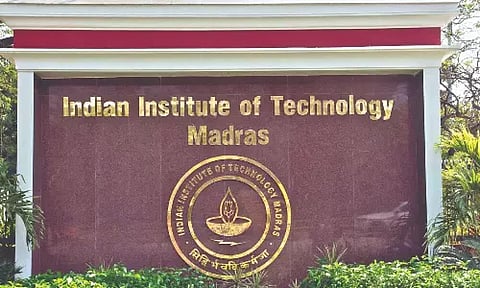

CHENNAI: In a significant stride toward realising the vision of Viksit Bharat by 2047, Indian Institute of Technology (IIT) Madras Director Prof V Kamakoti on Friday outlined a transformative roadmap involving a robust push for core engineering education, interdisciplinary research, and policy-aligned academic reforms.
Speaking at the Annual Day of PALS (Pan IIT Alumni Leadership Series), an IIT-M alumni initiative, Kamakoti emphasised the need to produce technologically equipped civil servants and a skilled workforce to drive India’s future growth.
“To achieve the goal of a developed India by 2047, we must nurture a larger pool of core engineering experts, ensure a strong base of skilled manpower, and encourage civil service aspirants from technical backgrounds,” Kamakoti said, adding that IITs have now partnered with PALS to drive this national vision.
“We will intensify our efforts in the coming years,” he said.
Addressing the institute’s latest performance in the QS World University Rankings 2026, Kamakoti announced that IIT-Madras has broken into the top 200 global universities—climbing an impressive 47 ranks from the previous year.
“This leap has been made possible due to remarkable growth in three key indicators: research citations, academic reputation, and employer perception. We have doubled our employer reputation score. To break into the global top 50, we are ramping up our international collaborations and focusing on high-impact global challenges—particularly sustainability, human development, and environmental conservation,” he said.
He added that sustainability is not merely a technological issue but also involves policy and management dimensions.
“Medical technology will be another crucial area of focus. We are confident that IIT-M will secure a position among the world’s top 100 universities within the next three years,” he noted.
Reaffirming the institute’s commitment to cutting-edge education, Kamakoti announced that IIT-Madras will launch a new Bachelor of Science (BS) degree in Aerospace and Drone Technology by September 2025.
“This will be offered in hybrid mode and aligned with the NEP 2020 framework, offering multiple entry and exit options,” he said.
Kamakoti stressed the growing need for interdisciplinary education, highlighting that even a civil engineer today needs proficiency in robotics and automation.
“Pursuing dual or multiple degrees simultaneously is no longer optional—it’s essential. UGC guidelines now permit students to pursue two degrees at the same time, and institutions must adapt,” he said.
He also appealed to private higher education institutions to strictly adhere to UGC and AICTE norms, encouraging them to offer more skill-based and SWAYAM courses, which the regulators permit up to 20% of total credits.
In a candid reflection on current academic trends, Kamakoti voiced concern over the disproportionate preference for computer science and artificial intelligence.
“Nearly 99.99% of top-ranking students are choosing computer science. Very few are opting for core disciplines like civil or mechanical engineering. This trend is alarming,” he said.
“We must reach out to the brightest minds and inform them about opportunities and innovation in other fields. Every research institution should have leaders from diverse academic backgrounds. Innovation thrives in interdisciplinary spaces—not just in AI and ML,” he said.
He also urged students to appear for GATE (Graduate Aptitude Test in Engineering), describing it as a valuable self-assessment tool.
“GATE helps students benchmark themselves and is a stepping stone to deeper research or public service. Tech-savvy administrators are critical to nation-building, and we must motivate the youth to enter civil services,” he added.
Directors from other IITs echoed similar sentiments during the PALS event.
IIT-Hyderabad Director B S Murty stated, “I’m a firm believer that India can become a developed nation by 2047. But for that, students must prioritise India first. Let us work tirelessly. Together, we can make the change.”
IIT-Dharwad Director Venkappayya R Desai emphasised the need for infrastructure to retain top talent in core disciplines.
“Across China and Israel, 22% of Nobel laureates attribute their success to traditional knowledge. We must draw from our own intellectual and cultural heritage to foster creativity and innovation,” he said.
IIT-Tirupati Director Kalidindi N Satyanarayana warned of growing imbalance in sectoral preferences.
“India aims to become the manufacturing hub of the world, especially in semiconductors and chip manufacturing. Yet, there is a glaring shortage of talent in core disciplines—mechanical, chemical, and electrical engineering. Graduates are being lured by lucrative packages in AI and data science, ignoring long-term prospects,” he said.
Citing a recent Wall Street Journal article that said India’s broken education system could derail its ambitions, Satyanarayana said, “This is a wake-up call. We must look at education as a 40-year investment—not a chase for short-term gains. Successful professionals in the core sectors should mentor the next generation.”
The PALS Annual Day 2024–25 event saw participation from directors of multiple IITs, prominent faculty, and members of over 50 higher educational institutions across Tamil Nadu.